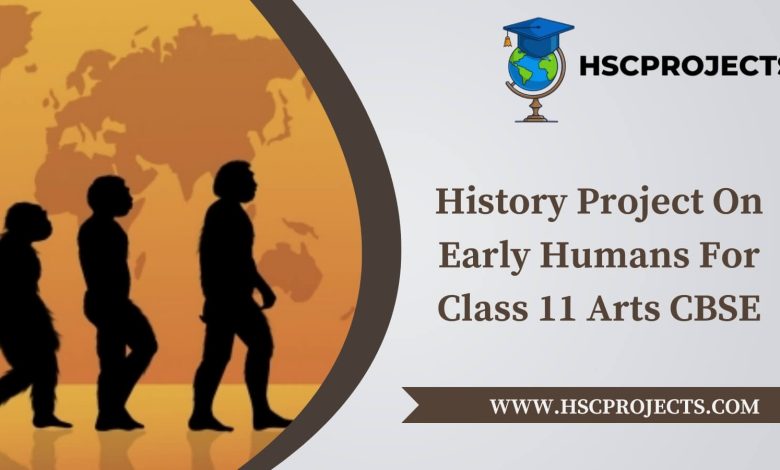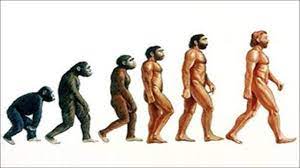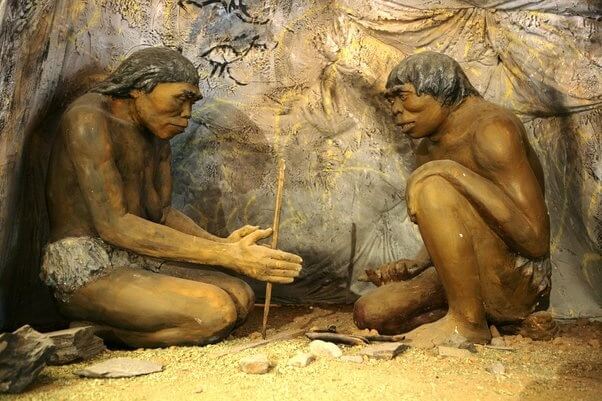
History Project On Early Humans For Class 11 Arts CBSE
Acknowledgment
Embarking on the exploration of early human history has been an enlightening journey, and the completion of this project would not have been possible without the collective efforts and support of several individuals and institutions. I extend my heartfelt gratitude to express appreciation for their invaluable contributions.
First and foremost, I would like to express my deepest thanks to [Name], my mentor and guide, whose expertise, encouragement, and unwavering support provided the compass guiding this project. Your insights and commitment to the pursuit of knowledge have been instrumental in shaping the narrative and depth of this exploration.
I extend sincere appreciation to the [Department/Institution] for providing the necessary resources and fostering an environment conducive to academic inquiry. The library staff and archivists have been instrumental in facilitating access to a wealth of scholarly materials, enriching the depth and authenticity of this endeavor.
Special thanks are due to [Name or Organization] for [specific contribution], which significantly enhanced the quality and scope of this project. Your expertise and generosity are genuinely appreciated.
I would also like to express gratitude to my peers and colleagues who provided valuable feedback and engaged in insightful discussions throughout the development of this project. Your diverse perspectives and intellectual contributions have been enriching and have undoubtedly shaped the final outcome.
Last but not least, heartfelt thanks to my friends and family for their unwavering support, understanding, and encouragement throughout this academic endeavor. Your patience and belief in my abilities have been a constant source of motivation.
In conclusion, this project stands as a testament to the collaborative spirit that fuels academic exploration. Each individual mentioned has played a crucial role in the realization of this endeavor, and I am sincerely thankful for their support, guidance, and shared enthusiasm for the pursuit of knowledge.
[Your Full Name] [Your Affiliation/Institution] [Date]Introduction
In the vast tapestry of human history, the exploration of our early origins serves as a profound journey, a captivating odyssey into the depths of time. This project seeks to unravel the mysteries and narratives woven into the fabric of prehistory, a time when our ancestors, navigating an ever-changing world, laid the foundation for the remarkable story of humanity.
- Definition of Prehistory: Before the advent of written records, prehistory encapsulates a significant span of time, providing a glimpse into the lives of early humans. This project endeavors to define and illuminate the contours of this era, bridging the gap between what we know and what we seek to understand.
- Importance of Studying Early Humans: The significance of studying early humans cannot be overstated. It is a journey that allows us to connect with the roots of our existence, offering insights into the challenges, innovations, and cultural nuances that shaped our species. By delving into the annals of prehistory, we gain a nuanced understanding of the forces that molded humanity into what it is today.
- Scope and Objectives of the Project: The scope of this project is expansive, spanning epochs from the emergence of hominins to the dawn of early civilizations. We aim to delineate key milestones, explore the dynamic shifts in technology and culture, and analyze the impact of environmental factors on the trajectory of human development. The objectives are manifold: to enlighten, to provoke thought, and to foster a comprehensive understanding of the profound journey that precedes recorded history.
As we navigate the chapters of the hominin timeline, from the Paleolithic to the Neolithic Revolution, and examine the intricate interplay of culture, technology, and environment, this project aspires to paint a vivid portrait of our ancestral heritage. Join us on this intellectual voyage as we unravel the enigma of early human history and strive to comprehend the profound legacy that echoes through the corridors of time.
[Your Full Name] [Your Affiliation/Institution] [Date]
Timeline of Early Human Evolution
Embark on a journey through the annals of time, tracing the footsteps of hominins. Major milestones in early human evolution unfold, showcasing the resilience and adaptability of key species such as Australopithecus, Homo habilis, and Homo erectus. Witness the evolution of tools and technology, each innovation marking a pivotal moment in our ancestral narrative.
- Cultural Evolution: Investigate the cultural shifts and advancements that accompanied the evolution of early humans, from simple tool usage to more sophisticated technologies.
- Migration Patterns: Examine the migratory patterns of early human populations, unraveling the motivations behind their movements and the impact on cultural exchange.
Paleolithic Era
Enter the Paleolithic Age, a chapter defined by nomadic societies immersed in the art of hunting and gathering. Amidst the vast canvases of cave walls, witness the birth of symbolic representation in the form of captivating cave art. Explore the intricacies of a nomadic lifestyle and the primal essence of Paleolithic societies.
- Technology and Tool Development: Delve deeper into the evolution of tools, from rudimentary stone implements to the refinement of weaponry and hunting tools.
- Symbolic Representation: Explore the significance of cave art and other forms of symbolic representation, deciphering the messages encoded in these ancient expressions.
Mesolithic Era
As we traverse from the Paleolithic to the Mesolithic, observe the transformative shifts in lifestyle and technology. The emergence of more advanced tools and early forms of social organization paints a portrait of a dynamic era teetering on the brink of progress.
- Social Structures: Analyze the changes in social structures during the Mesolithic era, investigating the emergence of more complex societal organizations.
- Environmental Adaptations: Examine how early humans adapted to changing environmental conditions and how these adaptations influenced their daily lives.
Neolithic Revolution
Uncover the significance of the Neolithic Revolution, a pivotal moment marked by agricultural advancements, the domestication of animals, and the birth of early civilizations. Witness the shift from nomadic wanderings to settled communities, forever altering the course of human history.
- Impact on Lifestyle: Investigate how the shift from nomadic lifestyles to settled agricultural communities transformed social structures, economy, and daily routines.
- Emergence of Civilizations: Explore the birth of early civilizations, examining the societal structures and technological innovations that laid the groundwork for more complex societies.
Impact of Environment on Early Humans
Navigate the ever-changing landscapes of early human existence, exploring the effects of climate changes on their journey. Admire the ingenious adaptations that enabled survival in diverse environments and unravel the intricate patterns of migration and their underlying motivations.
- Paleoclimate Studies: Discuss how advances in paleoclimate studies contribute to our understanding of the challenges early humans faced due to climatic fluctuations.
- Ecological Niches: Explore how early humans carved out ecological niches and adapted their behaviors to thrive in diverse environments.

Cultural and Social Aspects
Peer into the intimate tapestry of early human societies, examining family structures, social organizations, and the evolution of language. Explore the rich tapestry of rituals, beliefs, and religious practices that shaped the cultural identity of our ancestors.
- Burial Practices: Investigate burial practices and rituals, shedding light on early human beliefs, spirituality, and concepts of the afterlife.
- Communication: Explore the development of language and communication tools, highlighting the role of language in shaping social interactions.
Technological Advancements
Trace the evolution of tools and weapons, witness the transformative significance of harnessing fire, and marvel at the ingenuity behind the development of clothing and shelter. Each technological stride reflects the resourcefulness that defined early human progress.
- Metallurgy: Examine the advent of metallurgy and its transformative impact on tool development, weaponry, and societal structures.
- Innovations in Shelter: Investigate the evolution of architectural techniques, from early shelters to more sophisticated dwellings.
Challenges Faced by Early Humans
Confront the environmental challenges that early humans navigated, unravel the complexities of interactions with other hominin species, and explore the innovative survival strategies that paved the way for our continued existence.
- Competition and Cooperation: Analyze the dynamics of competition and cooperation among different hominin species, shedding light on the complexities of early human interactions.
- Innovative Responses to Challenges: Explore the inventive solutions early humans devised to overcome environmental and societal challenges.
Legacy of Early Humans
Reflect on the enduring legacy of early humans, acknowledging their profound influence on modern societies. Examine their contributions to art, technology, and culture, drawing invaluable lessons from the pages of our ancient history.
- Genetic Heritage: Discuss the genetic legacy of early humans and how it continues to shape the diversity of modern human populations.
- Cultural Contributions: Examine the enduring impact of early humans on contemporary art, technology, and cultural practices.
Human-Environment Interaction
- Resource Utilization: Investigate how early humans interacted with and exploited various natural resources, showcasing their resourcefulness in adapting to local ecosystems.
- Impact on Biodiversity: Examine the ecological footprint of early human populations and their role in shaping local biodiversity through activities such as hunting, gathering, and agriculture.
Artistic Expressions and Artefacts
- Artifact Analysis: Explore various archaeological artifacts, such as tools, pottery, and ornaments, shedding light on the technological, cultural, and economic aspects of different time periods.
- Symbolism in Art: Dive deeper into the symbolic meanings behind ancient artistic expressions, deciphering the narratives embedded in artifacts and artworks.
Trade and Exchange Networks
- Early Trade Routes: Investigate the emergence of trade networks, exploring how early humans engaged in commerce and exchanged goods, fostering cultural diffusion.
- Impact on Societal Development: Analyze the influence of trade on the development of early societies, examining how it contributed to economic growth and cultural diversity.
Health and Well-being of Early Humans
- Paleopathology: Explore evidence of diseases and health conditions in ancient human populations, providing insights into their health challenges and medical practices.
- Dietary Patterns: Examine the dietary habits of early humans, considering the impact of food sources on health and societal structures.
Technological Innovations in Art and Music
- Musical Instruments: Investigate the evolution of musical instruments and the role of music in early human societies, considering its cultural, social, and spiritual significance.
- Artistic Tools: Explore the tools and techniques used in ancient artistic endeavors, from pigment preparation for cave paintings to sculpting materials.
Theoretical Approaches in Anthropology
- Evolutionary Anthropology: Discuss various theoretical frameworks within anthropology, such as evolutionary anthropology, shedding light on the methodologies and interpretations employed in studying early human history.
- Cultural Evolutionism: Explore the concept of cultural evolution and its application in understanding the development of societal structures, technologies, and belief systems.
Ethical Considerations in Archaeology
- Cultural Sensitivity: Discuss the importance of cultural sensitivity in archaeological research, addressing ethical considerations in the excavation, preservation, and interpretation of ancient remains and artifacts.
- Community Engagement: Explore collaborative approaches involving local communities in archaeological projects, ensuring mutual respect and shared benefits.
Digital Technologies in Archaeological Research
- Virtual Reconstructions: Explore the use of digital technologies, such as virtual reconstructions and 3D modeling, in enhancing our understanding of ancient sites and artifacts.
- GIS Applications: Discuss the application of Geographic Information Systems (GIS) in mapping and analyzing archaeological data, providing new perspectives on human-environment interactions.
Future Directions in Early Human Studies
- Advancements in Scientific Techniques: Explore emerging scientific techniques, such as ancient DNA analysis and advanced dating methods, that promise to revolutionize our understanding of early human history.
- Interdisciplinary Approaches: Discuss the potential benefits of interdisciplinary collaboration, bringing together experts from fields such as genetics, climatology, and anthropology to enrich the study of early humans.
Conclusion
As we bring the curtains down on this odyssey through time, the exploration of early human history unveils a tapestry intricately woven with the threads of innovation, resilience, and cultural richness. This project embarked on a journey from the shadows of prehistory, shedding light on the remarkable saga of our ancestors, whose footsteps echo through the corridors of time.
- Recapitulation of Key Points: From the emergence of hominins to the Neolithic Revolution, each epoch revealed pivotal moments that shaped the trajectory of human evolution. The timeline traversed the Paleolithic and Mesolithic eras, exploring the nomadic lifestyle, symbolic expressions, and technological innovations that defined early societies. The Neolithic Revolution marked a transformative shift, witnessing the birth of settled communities and the foundations of early civilizations.
- Environmental Impact and Adaptations: The impact of environmental changes on early humans showcased their adaptive prowess, as they navigated diverse landscapes and climates. From climate-induced challenges to migrations and the establishment of ecological niches, these factors played a crucial role in shaping the course of human development.
- Cultural and Social Dynamics: Delving into the cultural and social aspects, we uncovered the intricacies of family structures, language development, and the evolution of rituals and beliefs. The echoes of ancient cultures reverberate in the artifacts, artistic expressions, and symbolic representations that have withstood the test of time.
- Technological Advancements and Challenges: The evolution of tools, the mastery of fire, and the development of architectural techniques showcased the ingenuity of early humans. They faced and overcame environmental challenges, engaged in innovative survival strategies, and interacted with other hominin species in a dynamic and competitive landscape.
- Legacy and Contributions: The legacy of early humans endures in the genetic heritage and cultural contributions that shape our modern societies. From artistic expressions to technological innovations, the lessons learned from early human history continue to resonate, providing profound insights into the human condition.
- Final Reflections: In this intellectual journey, we’ve not only uncovered the origins of humanity but also recognized the interconnectedness of our past with the present. The study of early human history is not merely an academic pursuit; it is a profound reflection on the resilience of the human spirit and the continuous journey of adaptation and innovation.
- Importance of Studying Early Human History: As we conclude, it is essential to emphasize the enduring importance of studying early human history. It serves as a compass guiding us through the complexities of our roots, offering lessons that transcend time and providing a deeper understanding of the forces that have shaped our collective identity.
In the tapestry of human existence, this project stands as a humble attempt to unravel the mysteries of our past. The exploration of early human history invites us to ponder not only where we came from but also where we are headed. The echoes of the past resonate in the present, urging us to carry forward the torch of curiosity, exploration, and appreciation for the intricate dance of humanity across the ages.
[Your Full Name] [Your Affiliation/Institution] [Date]Bibliography
- Boaz, Noel T., and Russell L. Ciochon. Dragon Bone Hill: An Ice-Age Saga of Homo erectus. Oxford University Press, 2004.
- Klein, Richard G. The Human Career: Human Biological and Cultural Origins. University of Chicago Press, 2009.
- Renfrew, Colin, and Paul G. Bahn. Archaeology: Theories, Methods, and Practice. Thames & Hudson, 2016.
- Scarre, Chris. The Human Past: World Prehistory and the Development of Human Societies. Thames & Hudson, 2018.
- Shreeve, James. The Neandertal Enigma: Solving the Mystery of Modern Human Origins. Harper Perennial, 1997.
- Stringer, Chris. Homo Britannicus: The Incredible Story of Human Life in Britain. Penguin UK, 2007.
- Trigger, Bruce G. A History of Archaeological Thought. Cambridge University Press, 2006.
- Wells, Spencer. The Journey of Man: A Genetic Odyssey. Princeton University Press, 2003.
Certificate of Completion
[Student’s Name][Class/Grade Level]This is to certify that I, [Student’s Name], a [Class/Grade Level] student, have successfully completed the “History Project On Early Humans For Class 11 Arts Cbse.” The project explores the fundamental principles and key aspects of the chosen topic, providing a comprehensive understanding of its significance and implications.
In this project, I delved into in-depth research and analysis, investigating various facets and relevant theories related to the chosen topic. I demonstrated dedication, diligence, and a high level of sincerity throughout the project’s completion.
Key Achievements:
Thoroughly researched and analyzed History Project On Early Humans For Class 11 Arts Cbse.
Examined the historical background and evolution of the subject matter.
Explored the contributions of notable figures in the field.
Investigated the key theories and principles associated with the topic.
Discussed practical applications and real-world implications.
Considered critical viewpoints and alternative theories, fostering a well-rounded understanding.
This project has significantly enhanced my knowledge and critical thinking skills in the chosen field of study. It reflects my commitment to academic excellence and the pursuit of knowledge.
Date: [Date of Completion]Signature: [Your Signature] [School/Institution Name][Teacher’s/Examiner’s Name and Signature]
In order to download the PDF, You must follow on Youtube. Once done, Click on Submit
Follow On YoutubeSubscribed? Click on Confirm
Download History Project On Early Humans For Class 11 Arts CBSE PDF






